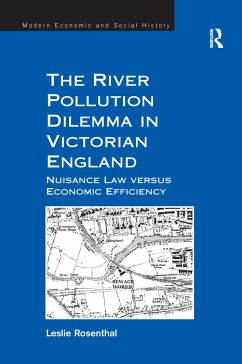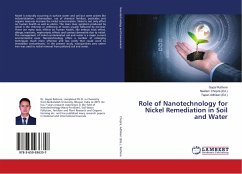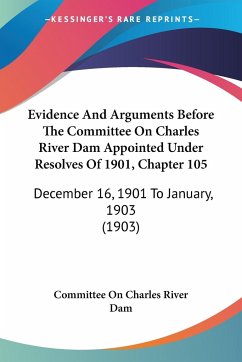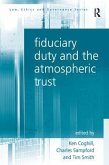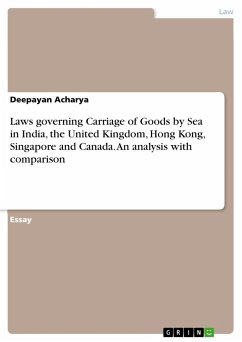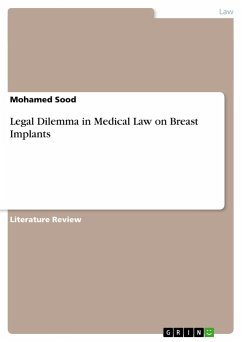Nineteenth-century Britain witnessed a dramatic increase in its urban population, as a hitherto largely rural economy transformed itself into an urban one. Though the political and social issues arising from these events are well-known, little is known about how the British legal process coped with the everyday strains that emerged from the unprecedented scale of these changes. This book explores the river pollution dilemma faced by the British courts during the second half of the nineteenth century when the courts had to confront the new incompatible realities arising from the scale of untreatable waste flowing into the rivers.
Hinweis: Dieser Artikel kann nur an eine deutsche Lieferadresse ausgeliefert werden.
Hinweis: Dieser Artikel kann nur an eine deutsche Lieferadresse ausgeliefert werden.
'The River Pollution Dilemma in Victorian England, is a careful and scholarly work that will be of interest to anyone working at the intersection of economics, law, and public health, especially if they have an interest in public water and sewer systems. The author does an excellent job sketching out the relevant economics and then showing how history illustrates those economic principles. ... this is a fine book that addresses an important historical problem. It merits the serious attention of anyone working in the field.' EH.Net 'This book provides a good contribution to the field of urban environmental history. Scholars interested in urban metabolisms, the sanitary city, and Victorian environmental management will find it compelling reading. The River Pollution Dilemma not only focuses on the effects of the sanitary city on the land and rivers outside the urban boundaries but also shows how the consequences of these effects fed back into the towns' management of their sewer systems.' H-Net 'Leslie Rosenthal's 'stories of the sewers' (p. xiv) are fascinating and written with a clarity of style that carries the reader effortlessly over some very murky ground; for this reviewer, at least, it constituted a goodread. Yet this is nopopular account of its subject, but a thoughtful and sober analysis of the problems involved in resolving the adverse environmental consequences of unregulatedand rapid urban development.' Social History of Medicine '...this is a fine study, with relevance to environmental policy-making past and present. One hopes it will stimulate other historians of the period to examine such cases similarly closely.' Economic History Review

